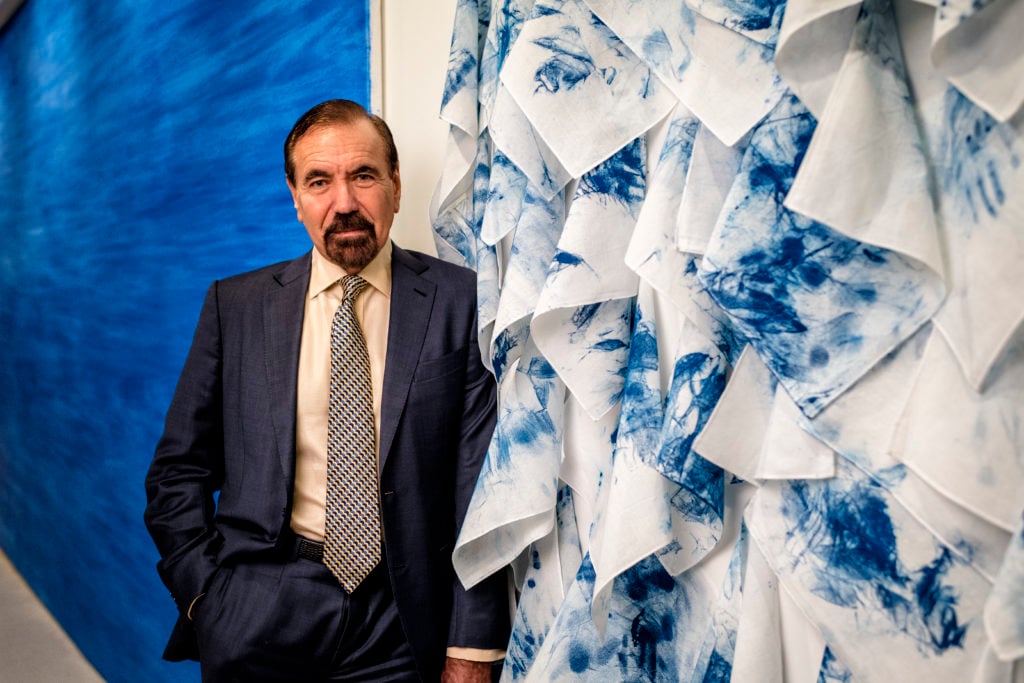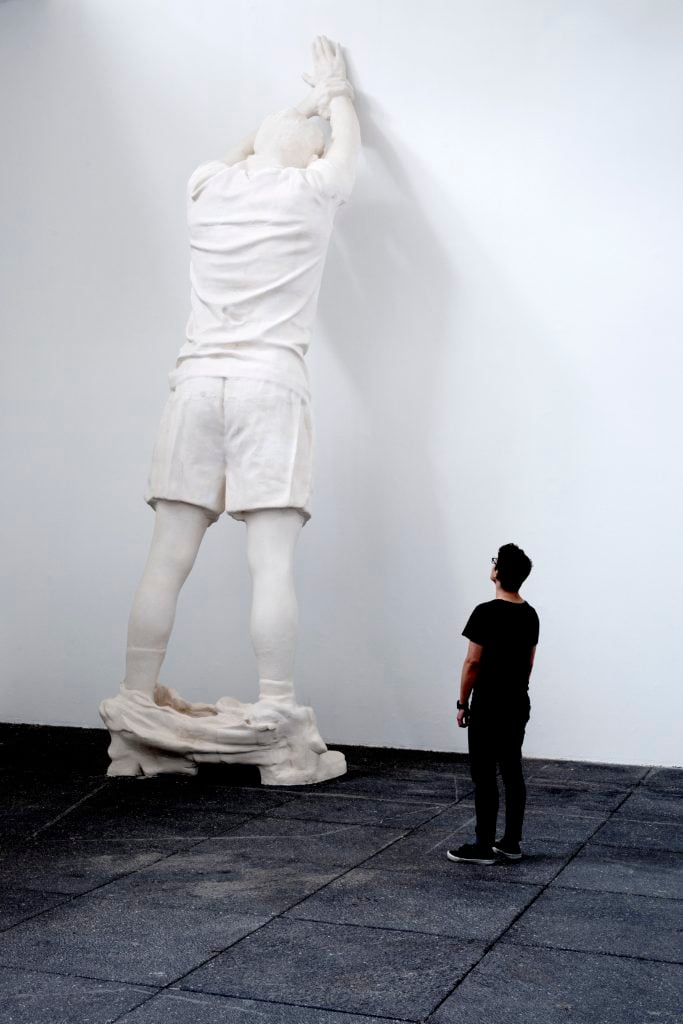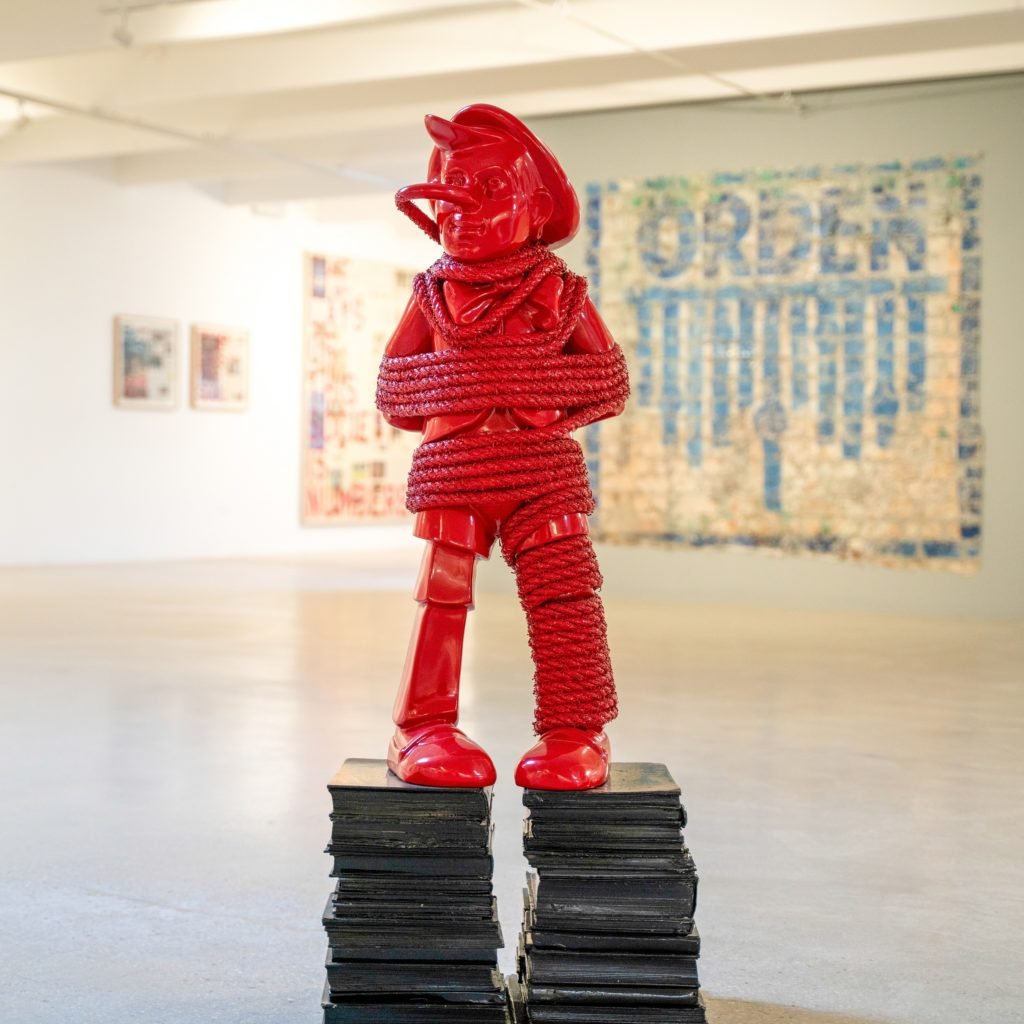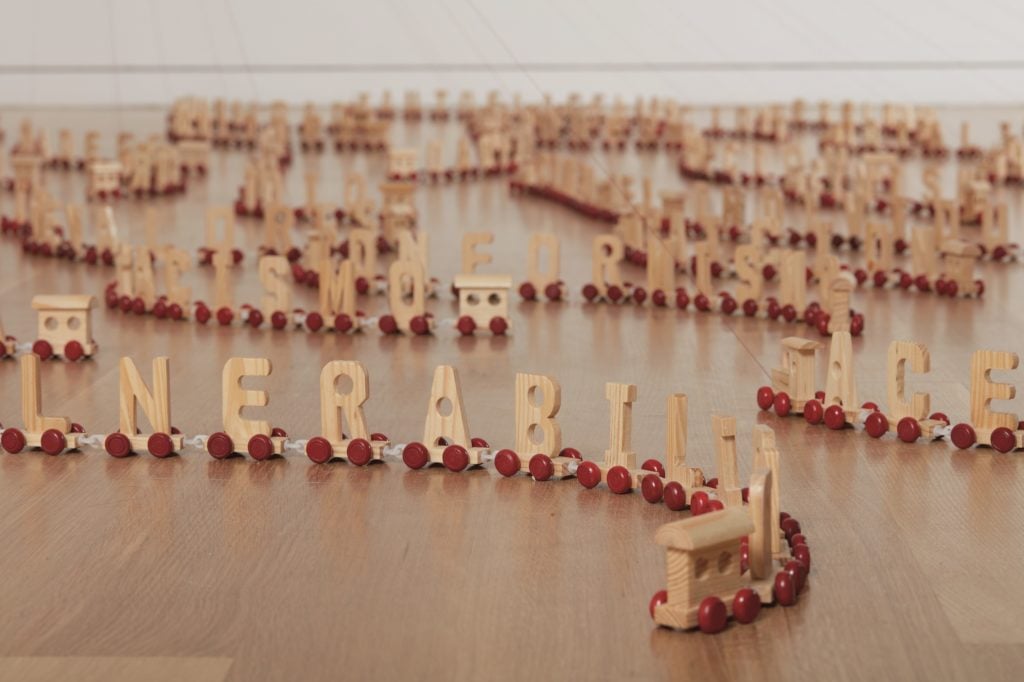On View
Mega-Collector Jorge Pérez Has So Much Art He Just Had to Open a Second Museum in Miami to Store It All
The inaugural show features about 100 works from his collection.

The inaugural show features about 100 works from his collection.

Sarah Cascone

When real estate mogul Jorge Pérez donated his art collection to the Miami Art Museum in 2011, he not only convinced the museum to change its name in his honor; he also solved one of his major problems: the fact that he was running out of storage.
Fast forward to 2018, however, and Pérez found himself once again in need of room for the more than 1,000 works he had collected in the years since his transformative gift.
“I wanted to be able to look at my art,” Pérez told Artnet News. “I was tired of buying art and having it go to a warehouse.” Despite rehanging his homes in Miami Beach and Coconut Grove once a year, there still wasn’t enough space.
So Pérez secured the building for what is now El Espacio 23, his new private museum in Miami’s Allapattah neighborhood, which led him to realize he could use it to show his collection to a larger audience.
“I wish I could say I had the vision to do this. But no, it was like: ‘I need warehouse space,'” he laughed.

Fernando Sánchez Castillo, Student (2016). Courtesy El Espacio 23.
The new museum opens after a year of renovations, which included the demolition of the interior of a 28,000-square-foot building. “It was just a horrible manufacturing storage facility, full of tiny little walls and drop ceilings,” Pérez said.
“We’ve always believed in showing the public the art that we collect, particularly those who don’t even think of art because it’s a little esoteric,” he said. After Art Basel, El Espacio 23 will begin hosting regular visits from local high schools.
The inaugural exhibition, “Time for Change: Art and Social Unrest in the Jorge M. Pérez Collection,” is curated by José Roca, who worked alongside Pérez’s full-time curators, Patricia M. Hanna and Anelys Alvarez. It features some 100 artworks by 80 artists, including Ai Weiwei, Doris Salcedo, Alfredo Jaar, Yinka Shonibare, Rirkrit Tiravanija, and Firelei Baez and is accompanied by a book with essays by the likes of Antwaun Sargent, Tobias Ostrander, and Coco Fusco.

Esterio Segura, La historia se muerde la cola (2015). Courtesy El Espacio 23.
“Everything I’ve been collecting for 49 years has dealt with society’s ills,” Pérez said. “I wanted to show the world that art is not just pretty pictures for the wealthy. Most of the art is very conceptual, but it all fits together and it all has meaning. Immigration, homelessness, sexism, racism, poverty, inequality, urban decay, government dictatorships, losses of freedom—all of those issues are there.”
When Pérez, who is Argentine but grew up in Colombia, began collecting art, he focused almost exclusively on works from Latin America. But after his initial $40 million donation to what is now the Pérez Art Museum Miami, he began expanding his collecting interests.
“It was sort of an act of freedom,” said Pérez, who has recently been focused on African contemporary art.
Future programming plans for El Espacio 23 are still in the works, but the space allows for flexibility. While “Time for Change” takes over the entire building, individual galleries could be dedicated to separate exhibitions. Pérez even envisions hosting performance groups, like a local ballet company. Forthcoming shows might be organized based on a theme, a geographic region, or an art movement, like Abstract Expressionism, a recent area of growth in the collection, particularly among women artists such as Elaine de Kooning.

Carlos Garaicoa, La habitación de mi negatividad (2003). Courtesy El Espacio 23.
The museum also includes three apartments, which will host artists and curators invited to organize shows. The first residents, Alberto Baraya and Augustine Woodgate, are currently working on projects inspired by the surrounding community.
Though Miami has become known for its many private museums, Pérez isn’t concerned about standing out from the crowd.
“Each of those spaces are very different in scope, and I think they’re very good for Miami,” he said. “My collection is going to PAMM, so my end goal is very different. Hopefully, even this space will go to PAMM.”
“Time for Change: Art and Social Unrest in the Jorge M. Pérez Collection” is on view at El Espacio 23, 2270 NW 23rd Street, Allapattah, Miami, Florida.